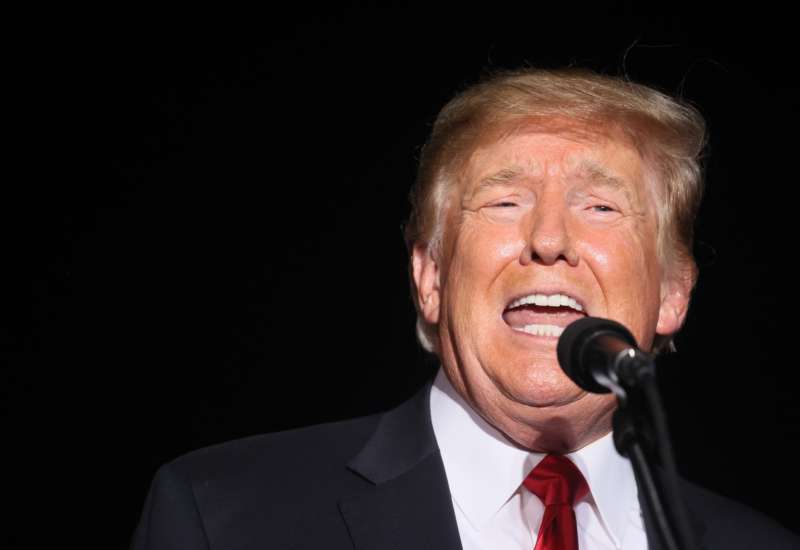Rep. Jamie Raskin (D-Maryland), a member of the House select committee investigating the January 6 Capitol attack, suggested on Tuesday that recent comments by former President Donald Trump “said the criminal part out loud” regarding his attempts to overturn the results of the 2020 election.
Earlier this week, Trump wrongly claimed on his website that efforts to reform the Electoral College prove that his scheme to get then-Vice President Mike Pence to disregard legitimate electors’ votes and count fake ballots instead was somehow legal.
“Unfortunately, he didn’t exercise that power, he could have overturned the Election!” Trump said in his statement.
Legal scholars have rejected that notion — if Trump’s claims were true, some have noted, it would mean that the sitting vice president would have the ability to accept or reject any election outcome, on any basis, without much oversight at all. Instead, proponents of reforming the Electoral Count Act say that change is necessary to prevent the exploitation of existing “ambiguities” in the statutes; this is precisely what Trump loyalists in Congress sought to do in their attempts to thwart the will of voters last year.
On Tuesday, CBS News asked Raskin whether the commission’s case against Trump had become simpler in light of the former president’s recent statement about trying to overturn the 2020 election results. Raskin said that it did, “in the sense that Donald Trump said the criminal part out loud.”
“That makes it very clear what he was up to,” he added, referring to Trump’s statement.
The commission’s investigation has still been challenging, Raskin went on, noting that Trump “has been trying to sandbag and obstruct us by getting his greatest intimates in his entourage — like Roger Stone and Steve Bannon and Mark Meadows — not to testify.” But most people who have been asked to give depositions have done so willingly, he said, even without being subpoenaed.
The January 6 commission is investigating a number of efforts to overturn the 2020 election results by the Trump White House, including attempts to seize voting machines from states where Trump falsely alleged that fraud had taken place. According to recent reporting from The New York Times, Trump played a larger role in that plot than was previously known, directing his subordinates, including his personal lawyer Rudy Giuliani, to ask the heads of at least three separate executive branch departments whether they had the authority to remove voting machines.
Trump loyalists in the White House also drafted an executive order that would have directed the National Guard to seize election equipment. But Trump never signed the order, possibly because he was advised that it would have been illegal.
Former secretary for the Department of Homeland Security Jeh Johnson said on Tuesday that forcibly seizing election machines from states could have been a criminal offense.
“It could potentially constitute a crime in my view,” Johnson said. “Certainly conspiring to seize voting machines, conspiring to hijack our election that way, to hijack our democracy, and I hope the January 6 committee and even the Department of Justice are looking at this apparent evidence.”


